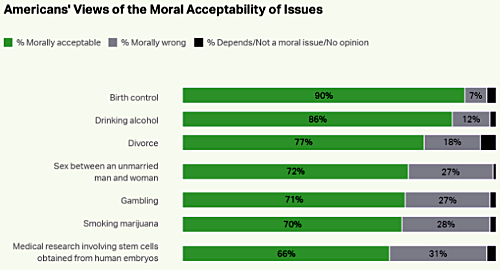Is Gambling Morally Right

Gambling -Is it Right or Wrong Gambling has been around forever, and I am sure it has always been a controversial issue. History and ethnography show us that, across societies of the past and present, gambling varies considerably with respect to its organization, social meanings, and how it is regarded in moral terms. Two-thirds of Americans find gambling to be morally acceptable behavior, according to a new Gallup poll. The poll, which was based on a phone survey (landline and mobile) of randomly sampled US.
Is Gambling Morally Right Thing


Now that some States have legalized bingo, people are asking, 'What is wrong with a little gambling?' First of all, keep in mind that legality and morality are often miles apart. Liquor drinking and prostitution are legal in some lands, but who would argue that they are moral?
What then can we say about bingo, church lotteries, sweepstakes, betting, and all forms of card playing for money? In whatever form it reveals itself, gambling is wrong, morally wrong, for the following reasons:
Is Gambling Morally Right Quote
- Gambling is motivated by the desire to get another's property without paying for it. In the open market a buyer gets 100 per cent returns for money invested. The thief who steals your purse gets something for nothing 100 per cent. When you pay $1 for a chance to win $100, you are motivated by the same desire as the thief, otherwise you would not gamble. This desire is a violation of the commandments, 'Thou shalt not steal' and 'Thou shalt not covet.'
- Gambling destroys character and incentive to honest labor. Take the $80-a-week bank clerk who wins $200 on a $2 bet. He has taken $198 out of society and put little or nothing back. Greed enters the picture and he considers himself a fool for formerly working so hard for so little. To continue his short cut to wealth he embezzles. Discovery, shame, prison, or suicide follows. Gambling does something to an individual's personality and character, and what it does is not good.
- It is immoral to support anything that robs and corrupts others. Gambling ties in with racketeers, vice, narcotics, crime, and all forms of illegality and immorality. Fifty million persons bet 30 billion dollars yearly in the United States. The annual profit to bookmakers and to numerous shady characters is 6 billion dollars, or more than the combined profits of U.S. Steel, General Motors, General Electric, and 97 other manufacturing companies. Think of what this money could do for industry, churches, schools, and hospitals!
- The gambler is a fraud. He develops skill for the sole purpose of beating another man out of his money. He is an expert at taking that which does not belong to him. Neither do the gambling mobsters with their slot, pinball, and coin machines make any pretense at an honest bargain. The gambler is a fraud first, last, and always. Jesus had much to say about honesty, sincerity, and integrity, and the gambler is a stranger to all three.
- The ends do not justify the means. Some argue that inasmuch as the profits of bingo and lotteries accrue to charity there cannot be too much wrong with this 'mild' form of gambling. Look carefully, and you will find that the antisocial and anti-Christian motives mentioned previously are involved even in so-called mild gambling. Being true, this makes the pittance that charity receives not a sacrificial gift, tithe, or offering, but a tainted byproduct of personal selfishness. God does not need the crumbs that fall from the devil's tables of luck, chance, and rabbit-toot superstition to support the Christian church. God has a clean and upright plan —namely, tithing.
What's wrong with a little gambling? Why, the same thing that is wrong with a little murder, a little larceny, a little lying, and a little adultery. The littleness of any evil is as wrong as its bigness. God's people are not only called to abstain from the evil of gambling, but also from its very appearance (1 Thess. 5:22).